Team
- Home/
- Team
Our Team
AVL members represent multiple departments across Jacob’s School of Engineering at UCSD including CSE, ECE, and MAE. With their diverse backgrounds, our members actively contribute to projects that include hardware design and synthesis, systems engineering, software engineering, perception, planning and controls.Professor and Graduate Students

Dr. Henrik I. Christensen
Principal Investigator and Research Advisor
Henrik I. Christensen is the director of Robotics at UC San Diego and the Qualcomm Chancellor’s ch
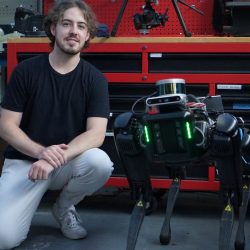
Seth Farrell
Perception
Seth is a PhD student in the Computer Science and Engineering department. He graduated from the Univ

Jing-yan Liao
Tracking and Prediction
Jing-Yan is a PhD student in UCSD CSE. He received his master degree in UCSD ECE and his bachelor de

Zihan Zhang
Perception
Zihan is a P.h.D student at the Computer Science & Engineering department working with professor Hen

Robin Wang
Behavioral Planning
Robin is a Ph.D. student in the Computer Science and Engineering department at UCSD. He received his

Chenghao Li
Autonomous Scooter
Chenghao is a master’s student in Intelligent Systems, Robotics, and Control at the ECE Department
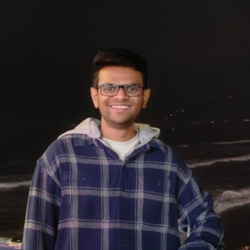
Akshar Tumu
Mapping and Perception
Akshar Tumu is a Master’s student in the Computer Science & Engineering department at UC San Diego
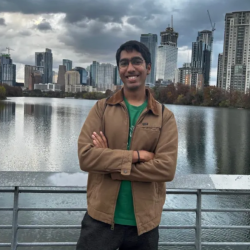
Abhijit Ravichandran
Behavioral Planning
Abhijit is a Master's student at the Department of Computer Science and Engineering in UC San Diego.

- www.hichristensen.net/
Dr. Henrik I. Christensen
Principal Investigator and Research Advisor
Henrik I. Christensen is the director of Robotics at UC San Diego and the Qualcomm Chancellor’s chair of robot systems. Dr. Christensen received his academic training (M.Sc and Ph.D.) from Aalborg University in Denmark. He has since then held positions at Aalborg University, University of Pennsylvania, and Georgia Tech before joining UC San Diego. Dr. Christensen does research on robotics, computer vision and AI with an emphasis on a systems approach to problems. He has published more than 350 papers and serves on multiple editorial boards. He is the Editor of Trends and Foundations in Robotics. Dr. Christensen was the editor of the US National Robotics Roadmap 2009, 2013 and 2016. He won the Joseph Engelberger Award 2011, which is the premier robotics industry award. He was also named Boeing Supplier of the Year and received an honorary doctorate (Dr. Techn. h.c.) from Aalborg University 2014. Dr. Christensen is the co-founder of multiple companies and serves as an advisor to companies, governments, and organizations across 4 continents.

Seth Farrell
Perception
Seth is a PhD student in the Computer Science and Engineering department. He graduated from the University of California, San Diego with a Bachelor's degree in Electrical Engineering with a focus on Machine Learning and a Master's in Electrical Engineering in the Intelligent Systems Robotics & Control concentration. He is currently working on the Mothership project.

Jing-yan Liao
Tracking and Prediction
Jing-Yan is a PhD student in UCSD CSE. He received his master degree in UCSD ECE and his bachelor degree in National Taiwan University. Currently his main research focus is in tracking and trajectory prediction.
follow me on

Zihan Zhang
Perception
Zihan is a P.h.D student at the Computer Science & Engineering department working with professor Henrik I. Christensen. She graduated both Bachelor’s and Master's degrees in Computer Science at the University of California, San Diego. She is interested in the intersection of robotics and deep learning. She is currently working on the trajectory prediction and intent recognition projects at AVL.
follow me on

Robin Wang
Behavioral Planning
Robin is a Ph.D. student in the Computer Science and Engineering department at UCSD. He received his bachelor's degree in Applied Mathematics and Computer Science at UC Irvine. His research focuses on building a scalable and safe planning system for autonomous vehicles that can operate in complex urban environments.
follow me on

- chl235@ucsd.edu
Chenghao Li
Autonomous Scooter
Chenghao is a master’s student in Intelligent Systems, Robotics, and Control at the ECE Department of UCSD. He received his bachelor’s degree from Chongqing University, China and University of Cincinnati, Ohio. He is currently working on Autonomous Scooter Project in the Autonomous Vehicle Laboratory (AVL).

Akshar Tumu
Mapping and Perception
Akshar Tumu is a Master’s student in the Computer Science & Engineering department at UC San Diego. He received his Bachelor's degree in Computer Science with a Minor in Data Science from BITS Pilani, India. Akshar's research interest lies in applying NLP and Multimodal AI for robotic applications, particularly in Autonomous Driving. His current research focuses on HD Map generation using LLMs and refining object detection using vision-language models. He has previously worked on Deep Learning and Multimodal AI applications at Michigan State University and Australian National University. Akshar is passionate about advancing AI for autonomous systems.
follow me on

Abhijit Ravichandran
Behavioral Planning
Abhijit is a Master's student at the Department of Computer Science and Engineering in UC San Diego. He received his Bachelor's degree in Computer Engineering from the National University of Singapore, where he gained valuable experience working on robotics projects. He is currently working on a project involving high-definition mapping for autonomous navigation within the UC San Diego campus.
follow me on
Undergraduate Students

Shashank Venkatramani
UCSD Digital Twin

Evan Yao
Graduated
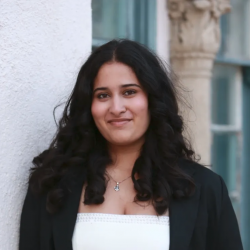
Pragnya Korti
Undergraduate Researcher

Cynthia Tang
Graduated
Alumni

Dr. David Paz Ruiz
Now at BOSCH Corporate Research

Dr. Henry Zhang
Now at BOSCH Corporate Research

Pojung Lai
Now at Qualcomm

Sumukha Harish
Now at Lucid Motors

Nathan Chan
Now at Qualcomm

Shawn Winston
Now at Qualcomm

Yuqing Jiang
Now at Facebook

Qinru Li
Now at Waymo

Hao Xiang
Now at UCLA (PhD student)

Yunhai Han
Now at Georgia Tech (PhD student)

Yuhan Liu
Now at Rutgers (PhD student)

Dominique Meyer, PhD
LiMAR AI Inc, Founder & CEO

Srinidhi Srinivas
Now at Autodesk Research

Parth Doshi
Now at Cruise

Parthasarathi Kumar
Now at AMD

Varun Vupparige
Now at Nexteer Automotive

Kai Chuen Tan
Now at Genista Biosciences

Narayanan Elavathur Ranganatha
Now at Qualcomm

Hitvarth Diwanji
Now at Matic Robotics
Pojung Lai
Now at Qualcomm

Sumukha Harish
Now at Lucid Motors

Nathan Chan
Now at Qualcomm

Shawn Winston
Now at Qualcomm

Yuqing Jiang
Now at Facebook

Qinru Li
Now at Waymo

Hao Xiang
Now at UCLA (PhD student)

Yunhai Han
Now at Georgia Tech (PhD student)

Yuhan Liu
Now at Rutgers (PhD student)

Dominique Meyer, PhD
LiMAR AI Inc, Founder & CEO

Srinidhi Srinivas
Now at Autodesk Research

Parth Doshi
Now at Cruise

Narayanan Elavathur Ranganatha
Now at Qualcomm

Hitvarth Diwanji
Now at Matic Robotics

Andrew Liang

Jessica Zhong

Andres Gutierrez

Yifan Wang
- yiw193@ucsd.edu

Trivikram Choudhury
- trivikramchoudhury@gmail.com

Rami Altai
- raltai@ucsd.edu

Tong Shen
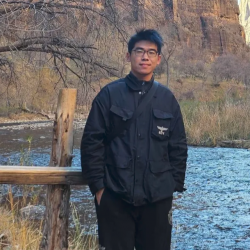
Jayanti Lahoti
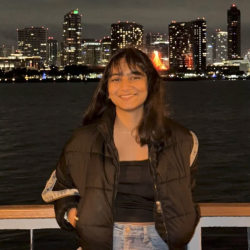
© 2020 Autonomous Vehicle Laboratory






